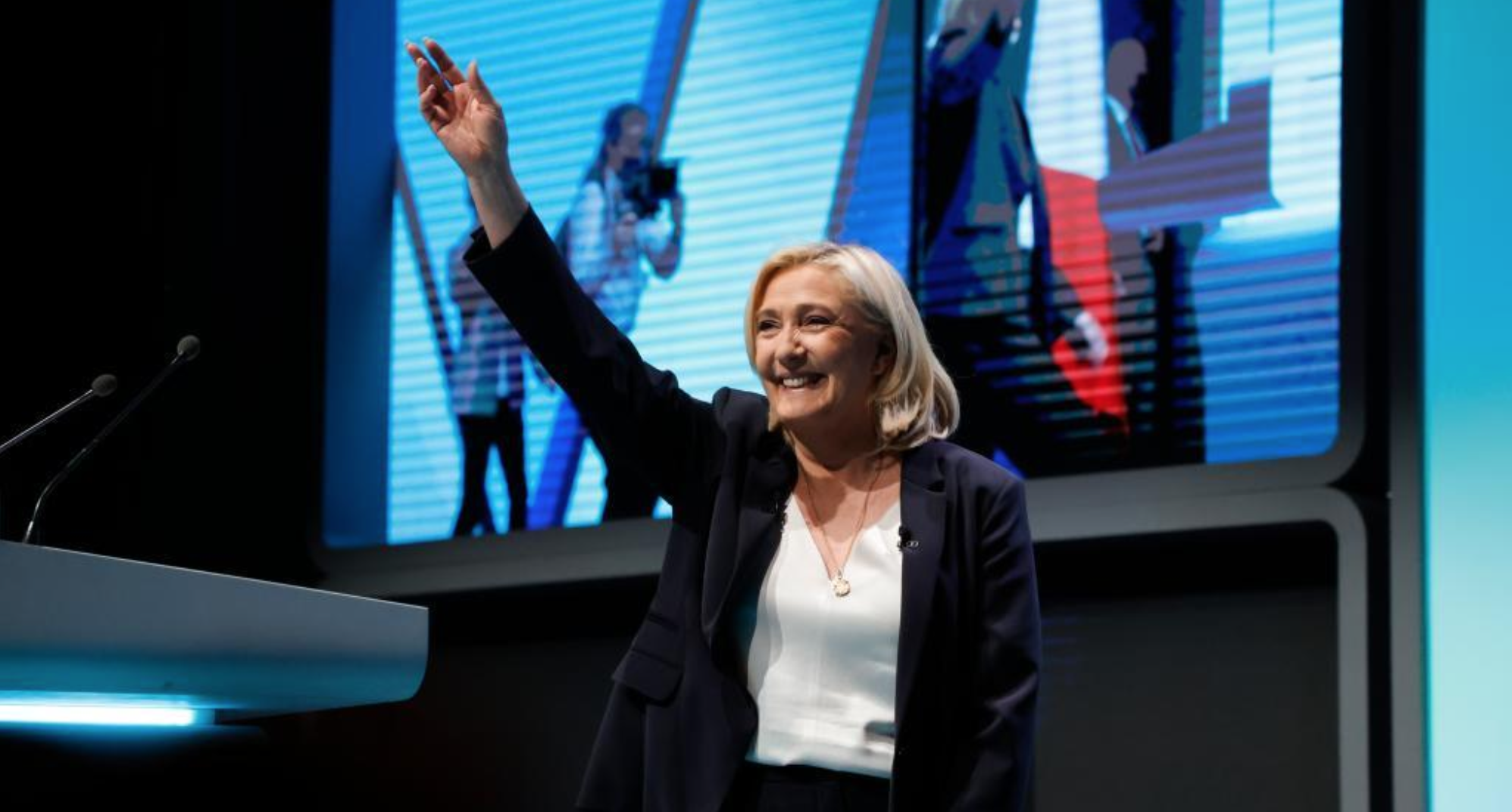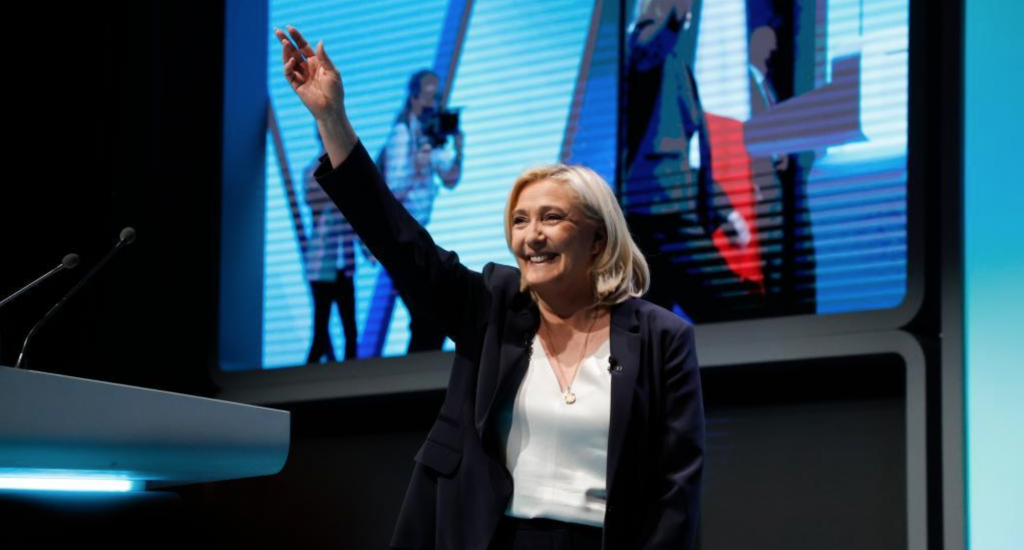The first round of the French presidential election has ended, showing a repeat of the same fixture from 2017 with a battle against incumbent Emmanuel Macron and Marine Le Pen. Caught between one of Western democracy’s regular and dull bipartisan affairs is the French electorate, who seem even more disinterested than 5 years ago.
The French political crisis is still ongoing, although the two candidates and many other commentators will refuse to recognise it as such. To the liberal observers, the Macron presidency was likely seen as an encouraging curtail against the rising interest in far-right populism in the West. But to simply perceive the two opponents as this is wrong.
For much of the 20th century, the French presidential elections when reaching the run-off stage would have featured The Republicans (Les Républicains) and the Socialist Party (Parti socialiste). Common with much of the world including the UK, the social democratic ‘left’ and conservative right were deemed the only ‘governable’ parties. Much due to the unpopularity of François Hollande and a multitude of defining French crises led to the demise of the Socialist Party, and in turn a demise of the standard political spectrum that was in France.
This demise has not only had an impact on the constitutional balance of the Republic, but also on the party process and its policy translation. French voters, who were formerly kind to the Blairite-resembling rise of Macron, have since fallen in disregard due to significant movements such as Gilets jaunes, the Benalla affair and the country’s handling of the pandemic. What we are witnessing is a country in the deepest cavern of ideological obscurity and political opportunism.
Macron, remains a flip-flopper but a stalwart defender of France’s capital. Much like the presidential elections in which Donald Trump has contested in, the ‘liberal’ candidate is almost wholly preferred by the bourgeois class as it allows for a particular ‘pushover’ quality that can’t always be found in today’s modern populists. Nonetheless, proven in Macron’s partially failed attempt to subject the French working-class to the oil, tax and austerity measures that spawned the Gilets jaunes, his chameleon agenda is best relevant to us when he claimed in an interview “I’m a Maoist … a good political programme is one that works.” His founding party, who you could be forgiven for not knowing the name of, La République En Marche!, is a party without a standard political membership base. Macron stands on being a tolerable placeholder to much of the French populace, whilst seemingly not being good at that.
Le Pen is similar in some ways. Her and her party National Rally (formerly National Front) tactics are certainly different, stoking up Islamophobia in the isolated formerly-industrial communities in a similarly twisted way as the Conservative Party have done in this country, Le Pen is a far more cut-out populist than Macron. Coming to attention specifically after the election of Donald Trump, branding her as far-right is simply unproductive in wider-political analysis. Despite inheriting the party from her virulently racist father Jean-Marie, Le Pen’s social policies remain mostly protectionist, and aspects of her foreign policy including her belief in the withdrawal of France from NATO are intriguing. This may be a matter of a broken clock being right twice a day, but Le Pen correlated with the ‘Trumpification’ by the media of any populist candidate and remains a slightly greater threat to the ruling class than Macron does. It’s a shame that anyone should have to think about lending a vote to a historically and also continually disgusting party, but in a twisted interest of working class self-preservation, a vote for Le Pen is understandably tempting against Macron’s landscape.
Here we are given to options each more frustrating once turning to look at each one again and again. One is a candidate who looks to continue their few substantial acts of authority that only occur against the tide of the working class; the other looks to garnish their political legitimacy through the easier acts of grave societal division whilst only briefly attempting to accommodate to the concerns that truly afflict those who vote for her. These two populists are a product of our age, and their detachment from political ideological framework, even if not that of our own, is alarming.
This continues onto the candidates who missed out in the election – Jean-Luc Mélenchon, the certainly more preferable left candidate, who came behind 1.1% of Le Pen’s vote total leading to him being left out of the run-off, stands on a wobbly non-ideological platform. His party, who were founded out of the Parti Socialiste collapse La France Insoumise, are self-described as ‘ecosocialist’. Fourth came Éric Zemmour, also a far-right political party opportunist garnering once again on Islamophobia and managed to get the support of Le Pen’s previously mentioned father.
What is now politics is the game of opportunity. No longer the conviction of belief, but the probability of gaining power by founding a party without much ideological construct through the manipulation of specifically working class voters. Although this is probably most apparent in France, the plague of ideological obscurity is on our shores too. Beyond being tantamountly corrupt, Boris Johnson remains a figure of whimsical unimportance to application of politics. Keir Starmer, as often as he’s compared to Tony Blair, lacks any of the smarminess and conviction that Blair once had.
There is no time like the present in Western Europe for the appraisal and relevance of the Communist movement in modern political conversation and action. Where there exists no rhyme or reason in capitalist societal politics with these opportunistic parties coming and going, our movement is still a constant. It goes far beyond the tribulations of electoralism.
Howard Green, is a member of the YCL’s East of England branch




